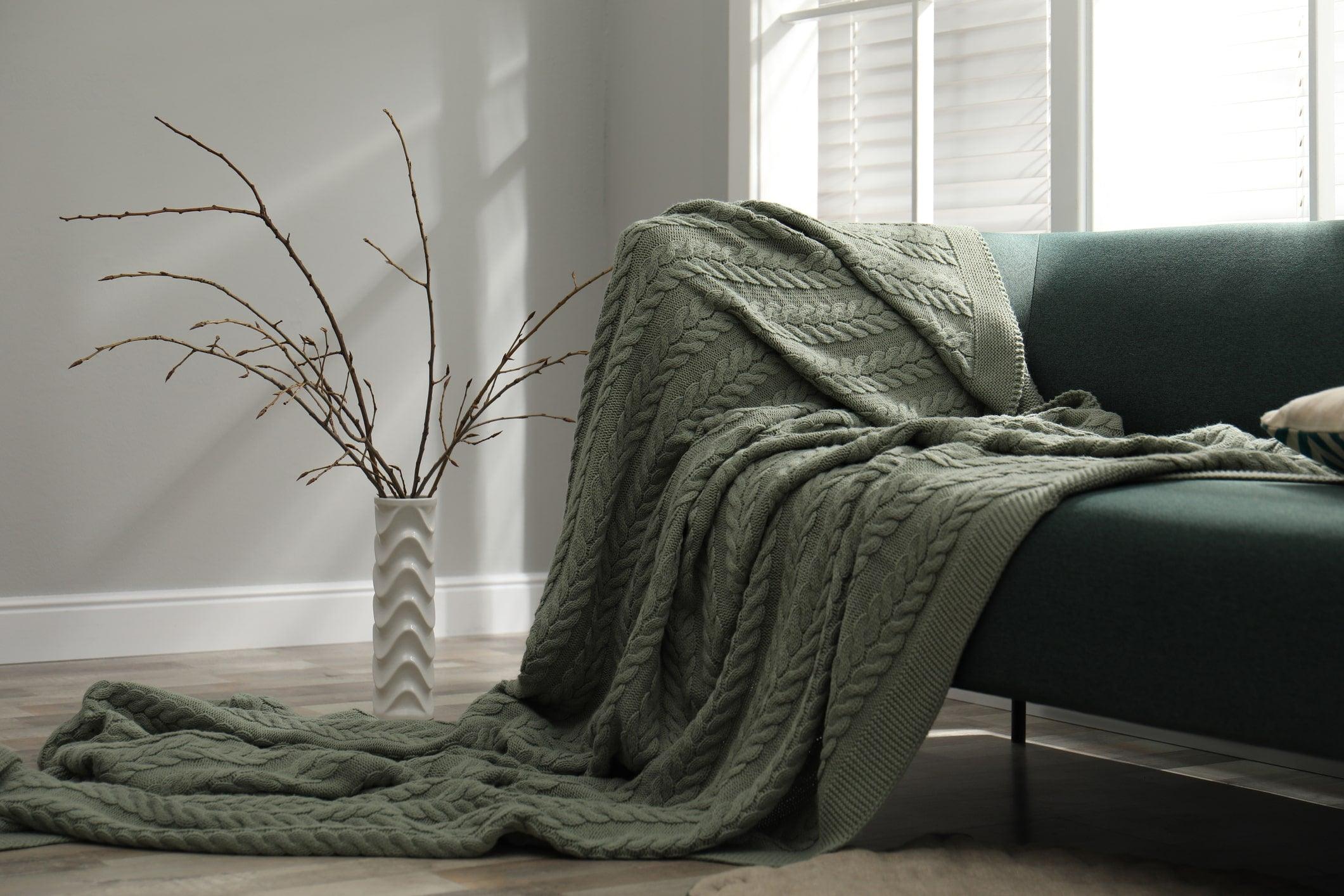Curling up with a good book, a cup of tea, and your favorite blanket is one of life’s sweet pleasures, but what can you do if you end up with an itchy blanket? We’ll answer your question, “Why is my blanket itchy?” as well as provide excellent tips on how to make your blankets soft again.
Here’s Why Your Blanket Is Itchy Sometimes
Some fibers, like wool or bamboo, are naturally a little itchier. When blankets that were once soft now feel rough and scratchy, it takes all of the delight out of a snuggle and can become uncomfortable.
One of the leading causes of blanket itchiness is fabric fiber damage. This can happen through normal wear and tear, from a spill or exposure to too much heat. Even using water that’s too hot in the laundering process can cause the tips of polyester fibers to “melt,” resulting in that scratchy feeling.
Maybe It’s the Sheets
Perhaps the question isn’t “why is my blanket itchy,” but “why are my sheets itchy?”
You should never take new sheets directly from the store to your bed. Sheets are treated with a number of chemicals to keep them wrinkle-free or wrinkle-resistant. One of the most common is formaldehyde. People with sensitive skin can react to the formaldehyde on new sheets, so you should always launder them before first use.
Can dirty sheets cause itching? Absolutely. As skin cells and hair shed, they can cause a buildup of bacteria, creating a buffet for dust mites, a problem for people with allergies. Other common factors that can make you itchy are:
- Perspiring because you’re too warm, particularly if you suffer from hot flashes and night sweats.
- Dehydration as you sweat; your body loses moisture, and your skin becomes dryer, resulting in itchiness.
- Sleeping in new or uncomfortable sleepwear.
- Switching to a new detergent that may irritate your skin.
No one wants to think about it, but “don’t let the bedbugs bite” is sound advice for your sleeping area. Bug bites can itch something terrible; if you’re allergic, the bites can cause even more significant health problems. Heat can kill bed critters but will damage your soft blanket. Fortunately, cold temps can do the same thing, so you can put your bedding in a plastic zipper bag and stick it in the freezer or outside if it’s cold enough.
Fur, hair, and dander from pets sharing your bed can also cause itchiness, especially if you’re allergic to pet dander. Cat and dog skin conditions like ringworm and mange can also transfer from bedding to humans, so always launder your bedding frequently and appropriately.
It’s essential to put clean sheets on your bed once a week, more often if you struggle with night sweats or allergies.
Maybe It’s the Fabric
People can be allergic to the strangest things, and bedding fabrics are no different. Feather pillows and comforters are common allergens. It is rare to have an allergy to wool, but the fabric itself can make you itchy. While textile dermatitis does not often occur, it is something to consider as a source of your blanket feeling itchy.
How You Can Fix an Itchy Blanket
Don’t fret if your blanket has become a little scratchy. There are things you can try to make it soft again.
It may seem logical to use a fabric softener to keep a blanket soft. However, the oils and petroleum-based fabric softener ingredients can accumulate over time and compress the fibers of your blanket.
If fibers appear damaged, try washing the blanket in cold water on a gentle cycle with no detergent. Adding a little white vinegar to the wash can help eliminate detergent and fabric softener buildup. After laundering, it’s best to air dry your blanket to minimize heat and tumbler impact. If you must use a dryer, use a tumble dry setting.
Another tip is to use a soft or medium bristle brush and lightly brush the blanket. Brushing releases slightly melted fibers, buildup, or impact damage caused by pinching in a recliner or scored by exposed toenails.
The Importance of Blanket Care
Various contaminants like bacteria and fungi can accumulate on your blankets and make you sick. Even cold germs can remain active on fabrics for a while. If you or a loved one in the home has been ill, make sure you wash the bedding. Proper laundering can help keep your blanket from getting scratchy in the first place.
How often should you wash your blankets? Experts suggest you wash big blankets like comforters and quilts seasonally. But it depends on how much they’re used and with whom you’re sharing them.
Blankets coming in direct contact with the skin should definitely be laundered more often, like those on your favorite chair or if you don’t use a top sheet in bed. Covers shared with pets and blankets used by children need to be washed more frequently.
The best practices for keeping your blankets soft are:
- Wash a load of blankets only. Items with buttons, zippers, buckles, and anything else that can snag or impact fibers can cause damage.
- Launder with cold water only on a delicate setting.
- Use only vinegar or a very mild detergent like those for baby clothes. Ensure the detergent doesn’t contain fabric softener, dyes, or fragrances.
- Don’t use fabric softener at all.
- Hang your blanket to dry using a clothesline or a drying rack. If you must use a dryer, tumble dry with no heat.
No More Itchy Blankets!
Tired of dealing with an itchy blanket? Shop our collection and find the perfect soft blanket. Sew Sweet Minky Designs has many designs, fabric patterns, color schemes, and sizes.
Choose blankets for sports fans, nature lovers, art enthusiasts, and comfort connoisseurs. Discover infant blankets and large blankets, too! You’re sure to find the perfect blanket for you and your loved ones. If you don’t find what you’re looking for or have questions, contact us, and we’ll be happy to chat with you.
When you’re ready for ultimate comfort and decadent softness, make it a Sew Sweet Minky Designs.


Share:
Are Blankets Recyclable? How & When to Recycle Old Blankets
How to Prevent—and Fix—Fraying Blankets